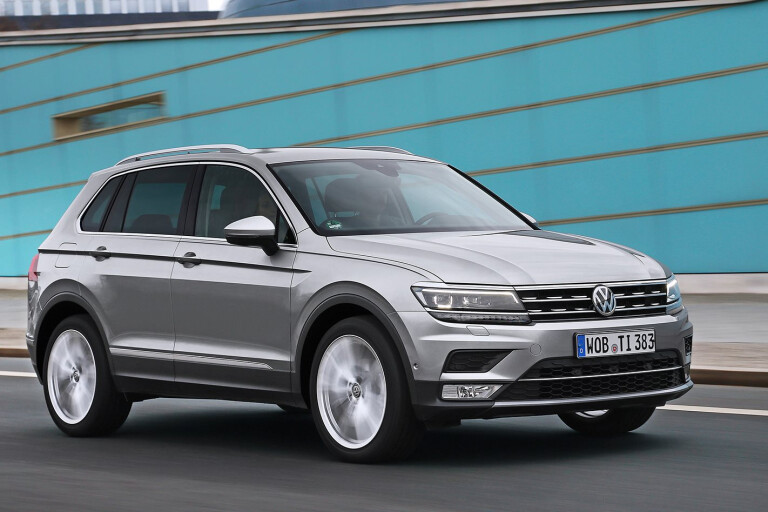
A lively AGM sees the troubled car-maker announce plans to be the first to add soot-reducing filters to its petrol engines.
VOLKSWAGEN continues to strive to clean up its act after diesel-gate – quite literally – with the announcement it will introduce soot-reducing particulate filters to its petrol engines.
The German brand’s declaration at its closely-watched annual general meeting on Wednesday night (AEST) puts it in a race with compatriot Mercedes-Benz to become the first car manufacturer to introduce petrol engines with the technology more commonly associated with diesel engines.
Mercedes said in May that it would release an updated S-Class in 2017 featuring a particulate filtered petrol engine.
VW chief executive Matthias Müller said the group’s first models to receive a petrol engine with this pollution-reduction tech would be the 1.4-litre TSI and TFSI versions of the VW Tiguan and Audi A5, in June 2017.
As with Mercedes, VW plans a large-scale roll-out of the tech – as part of its vision for the next decade, which it has dubbed ‘Together – Strategy 2025’.
“This [initiative] will reduce particulate emissions by up to 90 percent. Up to seven million Volkswagen vehicles could be equipped with this technology each year by 2022,” Müller said.
Particulate filters have been mandatory on diesel engines since Euro V emissions regulations were introduced in 2009. Petrol engines have hitherto been exempt from such technology, essentially because they’re significantly cleaner.
While diesels produce less CO2 than their petrol counterparts, they’re notoriously dirtier – producing 22 times the number of particulates – or soot – that cause air pollution, and have been blamed by the World Health Organisation for various health issues including cancer.
Particulate filters – which in diesels reduce soot by about 80 per cent – work by trapping soot in the exhaust system. The filters are cleaned – or ‘regenerated’ – automatically through elevated exhaust temperatures burning off the soot, either naturally through high vehicle speed or programmatically via the engine management software.
Volkswagen’s move to improve the cleanliness of its petrol engines comes from its expectation that combustion engines will continue to count for the majority of its drivetrains by 2030.
While the company is aiming for an unrivalled 30 fully electric vehicles by 2025, it says two in three of its models will be powered by petrol or diesel engines by 2030.
Volkswagen also announced at its AGM in Hanover, Germany, that it would invite independent third parties to evaluate its future internal emissions tests.



COMMENTS